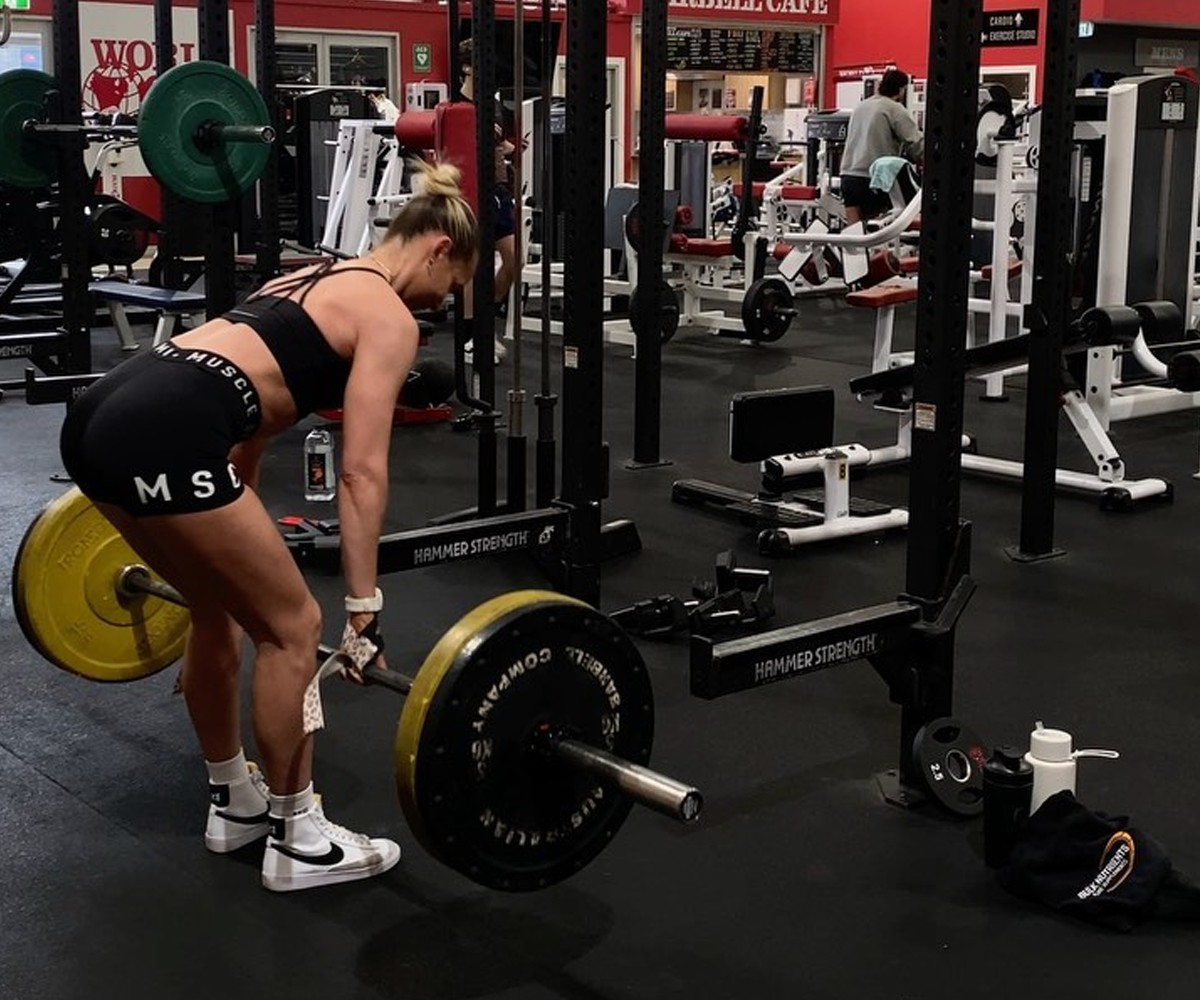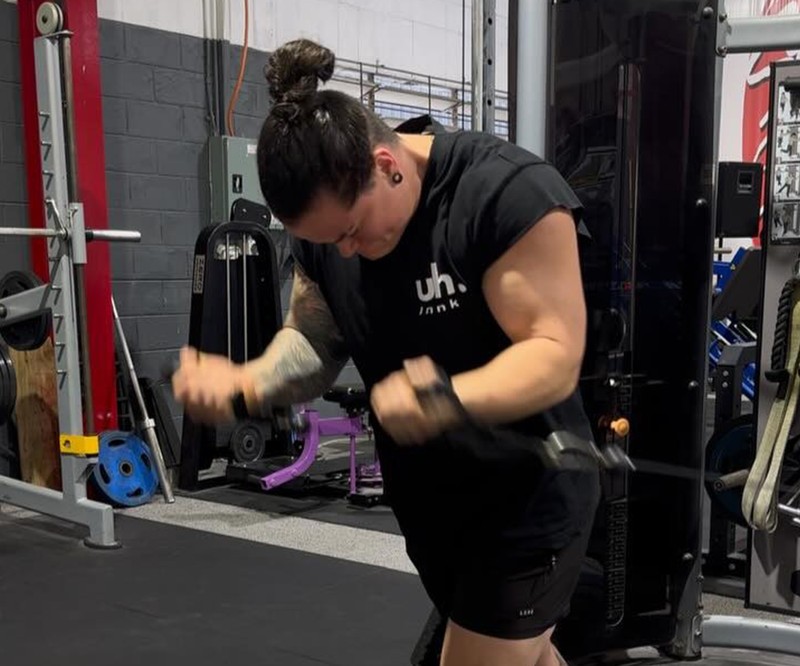Why You Need a Deload Week for Maximum Muscle Growth

How do deload weeks help me grow more muscle and get stronger?
Deloads are a great way to prevent general fatigue, injuries, plateaus, and those periods where you're just sick of training.
If you turn up to the gym daily, taking just about every set to muscle failure, and lifting a really challenging weight in the 4-6 rep range, you're going to hit a plateau.
You're also likely to wind up unmotivated.
So deloads exist to reduce your training load in a given week, to give your muscles, tendons, and central nervous system a deserved break from intense lifting. And these parts all heal at different rates; our central nervous system in a few hours, our muscles within two days, but bones, ligaments and tendons, much longer (and varying for individuals).
So, a deload week involves reducing three things: the amount of weight we lift, how many sets we do, and how many reps are performed.
So, if Bulk Nutrients customer Gus normally does:
4 workouts a week for 80-100 reps of 70-80% of his one rep max to muscle failure, then he might consider (from our experience):
4 workouts per week still, but at 30-60% of his one rep max (where 40-50 reps might be performed) and stopping 3-5 reps before muscle failure.
In other words, try reducing your sets by 30-50% and lift at 30-60% of your one rep max, whilst stopping at 3-5 reps shy of complete muscle fatigue.
How often should we perform a deload week?
Firstly, a deload week is only if you're training hard enough in line with the three scientific principles of muscle growth:
- Mechanical Tension
- Metabolic Stress
- Muscle Damage
And the first principle, mechanical tension, refers to lifting heavy.
For more on these principles check out this Bulk Nutrients article: These are the three principles of muscle growth: Here's how to follow them properly.

Now if you're not training at 75-80% of your one rep max for portions of your workout, then a deload week isn't for you. Your body simply isn't being taxed as hard as someone who is.
But let's assume you are, then take a look at the below recommendations:
Lifting experience of 1-3 years: Deload week every 5-8 weeks of training.
Lifting experience 3 years plus: Deload week every 4-6 weeks of training.
New to weight lifting: Deload week after 7-11 weeks.
If you're in a calorie deficit (ie on a weight loss diet) then begin your deload 2 weeks earlier than the recommendations above.
And don't bother training for longer than 10 weeks without a deload; motivation generally wanes, your body is tired, and you won't be getting the most out of your training sessions.
Can you still grow muscle in a deload week?
Of course! Studies show that even in trained subjects, 8-12 reps or 20-25 reps grew a particular muscle in the leg to the same degree in both rep ranges.
If you think training at 30% of your one-rep max is not enough weight for muscle growth, you'd be wrong. A review in 2021 concluded that 30% of your one-rep max still induces muscle growth to the same degree as percentages higher.
Moreover, we can maintain our muscle gains simply by having just 13-minute workouts! One set per muscle group (two for back and three sets for legs) three times per week might be all we need.
And even if we didn't lift a weight in a deload week (having a week off can be a viable option, too), studies show that we can go THREE weeks before we start losing muscle tissue.

It's easy to think that a deload week is a "cop-out" or "not training at my full potential for maximal muscle growth." But this just isn't true and will not hinder your gains at all.
The fact is, a deload week will improve your level of muscle growth.
Should I train to failure during deload weeks?
No -- always train until you have about 3-5 reps left in the tank.
This is because muscle failure causes much more fatigue than stopping before you are totally fatigued.
The bottom line is that deload weeks, while they feel like you're not training as hard, are better for your muscle gains long term. Our recommendations are to perform deload weeks by reducing your sets by 30-50% and lifting at 30-60% of your one-rep max, whilst stopping 3-5 reps before you reach muscle failure.
Doing this in line with how experienced you are as a lifter ensures you continue on your muscle growth journey with a better shot at optimal muscle growth.
References:
- Khan KM, Cook JL, Bonar F, Harcourt P, Astrom M. Histopathology of common tendinopathies. Update and implications for clinical management. Sports Med. 1999 Jun;27(6):393-408. doi: 10.2165/00007256-199927060-00004. PMID: 10418074.
- Kiely J. Periodization paradigms in the 21st century: evidence-led or tradition-driven? Int J Sports Physiol Perform. 2012 Sep;7(3):242-50. doi: 10.1123/ijspp.7.3.242. Epub 2012 Feb 16. PMID: 22356774.
- Latella C, Hendy AM, Pearce AJ, VanderWesthuizen D, Teo WP. The Time-Course of Acute Changes in Corticospinal Excitability, Intra-Cortical Inhibition and Facilitation Following a Single-Session Heavy Strength Training of the Biceps Brachii. Front Hum Neurosci. 2016;10:607. Published 2016 Dec 1. doi:10.3389/fnhum.2016.00607
- Ogasawara R, Yasuda T, Ishii N, Abe T. Comparison of muscle hypertrophy following 6-month of continuous and periodic strength training. Eur J Appl Physiol. 2013 Apr;113(4):975-85. doi: 10.1007/s00421-012-2511-9. Epub 2012 Oct 6. PMID: 23053130.
- Schoenfeld BJ, Contreras B, Krieger J, Grgic J, Delcastillo K, Belliard R, Alto A. Resistance Training Volume Enhances Muscle Hypertrophy but Not Strength in Trained Men. Med Sci Sports Exerc. 2019 Jan;51(1):94-103. doi: 10.1249/MSS.0000000000001764. PMID: 30153194; PMCID: PMC6303131.
- Timón R, Olcina G, Camacho-Cardeñosa M, Camacho-Cardenosa A, Martinez-Guardado I, Marcos-Serrano M. 48-hour recovery of biochemical parameters and physical performance after two modalities of CrossFit workouts. Biol Sport. 2019;36(3):283-289. doi:10.5114/biolsport.2019.85458
- Zourdos MC, Klemp A, Dolan C, Quiles JM, Schau KA, Jo E, Helms E, Esgro B, Duncan S, Garcia Merino S, Blanco R. Novel Resistance Training-Specific Rating of Perceived Exertion Scale Measuring Repetitions in Reserve. J Strength Cond Res. 2016 Jan;30(1):267-75. doi: 10.1519/JSC.0000000000001049. PMID: 26049792.
Related Blogs

How Many Sets per Workout for the Best Muscle Growth?
Posted by Bulk Nutrients
Estimated reading time: 6 minutes

Thor's superhero arm workout
Posted by Andy Leigh
Estimated reading time: 1 minute

Will Blood Flow Restriction Training Make Me Grow More Muscle?
Posted by Bulk Nutrients
Estimated reading time: 5 minutes














































